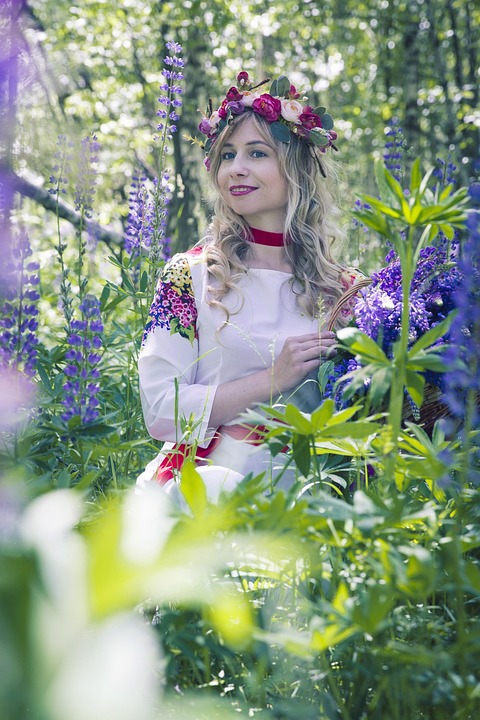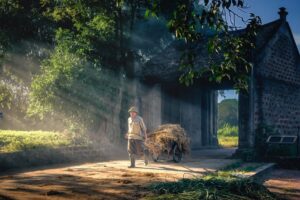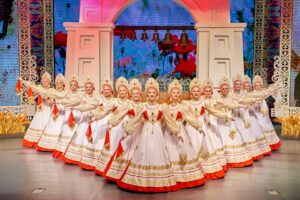Russia has a rich history of agriculture, dating back to ancient times. Traditional farming practices have played a significant role in shaping the country’s agricultural landscape and continuing to influence modern agricultural practices. In this article, we will explore the importance of traditional farming practices in Russian agriculture and their impact on the industry.
History of Traditional Farming Practices in Russia
Traditional farming practices in Russia have been passed down from generation to generation, with many techniques dating back centuries. Russians have always had a strong connection to the land and have developed unique farming methods to adapt to the country’s harsh climate and vast landscapes. Some of the traditional farming practices in Russia include crop rotation, use of draught animals, and communal farming.
Crop Rotation
Crop rotation is a common agricultural practice in Russia, where farmers alternate the types of crops planted in a field each year. This helps to replenish the soil nutrients, control pests and diseases, and improve overall crop yield. Traditional Russian farmers have been practicing crop rotation for centuries, with a typical rotation cycle including cereals, legumes, and root vegetables.
Use of Draught Animals
Draught animals, such as horses and oxen, have been an integral part of traditional Russian agriculture. These animals are used for plowing fields, transporting crops, and providing power for various farm tasks. While modern farming equipment has largely replaced the use of draught animals in commercial agriculture, they are still used by some traditional farmers in remote rural areas.
Communal Farming
Communal farming, known as “collective farming” in Soviet times, has been a long-standing tradition in Russian agriculture. In communal farming, farmers work together to cultivate and harvest crops on a shared piece of land. This practice fosters cooperation among farmers and ensures a sustainable use of resources. While the concept of communal farming has evolved over the years, it still remains a part of traditional farming practices in some rural communities.
Impact of Traditional Farming Practices on Russian Agriculture
Traditional farming practices continue to play a significant role in Russian agriculture, influencing everything from crop selection to land management. These practices have helped farmers adapt to the country’s unique climate and geographical challenges, and have contributed to the sustainability of agriculture in Russia.
Sustainability
Traditional farming practices in Russia are based on principles of sustainability and resource conservation. By maintaining healthy soil, rotating crops, and using natural fertilizers, traditional farmers are able to produce crops without depleting the land’s natural resources. These practices help preserve the environment for future generations and ensure the long-term viability of agriculture in Russia.
Resilience
Traditional farming practices have helped Russian farmers adapt to the country’s harsh climate and unpredictable weather conditions. By diversifying crops, implementing crop rotation, and using traditional knowledge of weather patterns, farmers are better equipped to deal with climatic challenges such as droughts, floods, and extreme temperatures. This resilience has allowed traditional farmers to continue producing food even in the face of adversity.
Cultural Heritage
Traditional farming practices are an important part of Russia’s cultural heritage, reflecting the country’s history, traditions, and values. These practices have been passed down through generations and continue to be a source of pride for many Russian farmers. By preserving and promoting traditional farming methods, Russia is able to maintain a connection to its agricultural past and celebrate the contributions of traditional farmers to the country’s agricultural industry.
Challenges Facing Traditional Farming Practices in Russia
While traditional farming practices have proven to be valuable in Russian agriculture, they are not without challenges. Modernization, industrialization, and changing market dynamics have all posed threats to traditional farming methods in Russia. Some of the key challenges facing traditional farming practices in Russia include:
Urbanization
As Russia’s population becomes increasingly urbanized, there is a growing disconnect between consumers and traditional farmers. Many young people are leaving rural areas in search of better opportunities in the city, leading to a decline in the number of traditional farmers. This urbanization trend is putting pressure on traditional farms to modernize and adapt to changing consumer preferences.
Industrial Agriculture
The rise of industrial agriculture has also posed a challenge to traditional farming practices in Russia. Large-scale commercial farms, equipped with modern machinery and technology, are able to produce crops more efficiently and on a larger scale than traditional farmers. This competition has made it difficult for traditional farmers to compete in the market and maintain their livelihoods.
Climate Change
Climate change is another major threat facing traditional farming practices in Russia. Changes in temperature, precipitation, and extreme weather events are affecting crop yields, soil health, and water availability. Traditional farmers are being forced to adapt to these changing conditions by implementing new farming techniques, using drought-resistant crops, and investing in irrigation systems.
Conclusion
Traditional farming practices are an integral part of Russian agriculture, playing a crucial role in sustainability, resilience, and cultural heritage. While these practices face challenges from urbanization, industrialization, and climate change, they continue to be a key driver of the country’s agricultural industry. By preserving and promoting traditional farming methods, Russia can ensure the long-term success and viability of its agricultural sector.
In conclusion, traditional farming practices in Russia are a testament to the country’s rich agricultural heritage and the ingenuity of its farmers. By embracing these practices and supporting traditional farmers, Russia can continue to thrive as a major player in the global agricultural market.





